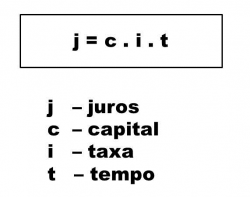Informational capitalism, also called cognitive capitalism, is a concept created by the Spanish sociologist Manuel Castells in his book "A Sociedade em Rede", published in 1996.
Informational capitalism corresponds to the period of current economic development, characterized above all by the information technology development and the advance of globalization after the Third Industrial Revolution.
The changes brought about by the Technical-Scientific Revolution of the mid-twentieth century restructured society beyond the mode of production and economic relations. They also changed social and cultural relationships around the world.
Some scholars define informational capitalism as the fourth (and current) phase of the capitalist system, however there are many divergences in relation to this definition. The author of the concept, Castells, did not classify it as a phase, but as a characteristic of today's society.
Understand what the capitalism and yours features.
The rise of informational capitalism
Informational capitalism represents society from the turn of the 20th century to the 21st century and was the result of the transformations brought about by the Third Industrial Revolution, also called Technical-scientific revolution.
It was at this stage of the Industrial Revolution that cutting-edge industries, robotics and telecommunications, for example, emerged. The development of technology in this period allowed the production of products and scientific evolutions that were previously unimaginable.
Learn more about Third Industrial Revolution.
The form of communication and the flow of information have changed in such a way that they are instantly passed on to an immense number of people around the world.
Capitalism then restructures itself from new information technologies. One of the milestones of this change is the production model replacement Fordist by the Toyotist model in the mid-1970s. Understand the difference between them:
- Fordism: popularized at the beginning of the 20th century, it was based on mass production and a production line where each worker would perform a specific function.
- Toyotism: to avoid overproduction and storage costs, production is made more flexible, which is now made to order, reducing the waste of raw materials and production time.
Learn more about Fordism it's the toyotism.
This change in the form of production was only possible thanks to advances in communication and transport technologies, which allowed orders, ordering raw materials and deliveries were carried out in the shortest possible time and in accordance with demand.
In addition to the mode of production itself, the technological revolution of that period transformed the way human beings relate to the world and other people.
The internet made it possible to create a network society, where people are connected even thousands of miles away. Knowledge has also become much more accessible: it is in the palm of your hands, through a smartphone with internet access.
This does not mean that all people are inserted in the world of internet and easy access to knowledge.
Economic development takes place unevenly between countries and according to an international division of labor (DIT). This division allows advances in developed countries, but reproduces misery in underdeveloped countries.
If, on the one hand, there are countries where the majority of the population has access to the Internet at home, in others, there is still a lack of basic survival resources for the majority of the population.
See also the meaning of DIT and misery.
The phases of capitalism
There is a debate whether we are in the fourth phase of capitalism - represented by informational capitalism - or whether we remain in the third. Check below what these phases are and the characteristics of each one:
- 1st phase - Commercial capitalism: also called mercantilism, corresponds to the period from the 15th to the 18th century. This phase corresponds to the emergence of currencies for trade and is based on manufacturing production and protectionism.
- 2nd phase - Industrial capitalism: this phase is inaugurated with the Industrial Revolution and the rise of the bourgeoisie. It is based on economic liberalism, large-scale production and wage labor. During this period, imperialism and globalization were strengthened and social inequalities were intensifying.
- 3rd phase - Financial capitalism: this phase is represented by the control of banks and other financial institutions over the economy and speculative capital. It is the time for expansion of multinational companies, the globalization of the economy and advances in communication and transport.
According to some scholars, informational capitalism would be the 4th phase of the capitalist system. However, it is notable that the characteristics of the 3rd phase are still predominant in our society.
Therefore, it is more appropriate to understand the informational capitalism as a phenomenon which occurs in parallel to financial capitalism.
That is, we are still living in the third phase of capitalism, represented by the globalization of the economy and the predominance of capital financial, but now restructured by the changes brought about by the revolution in information and Communication.
See also the meaning of commercial capitalism, industrial capitalism and financial capitalism.

